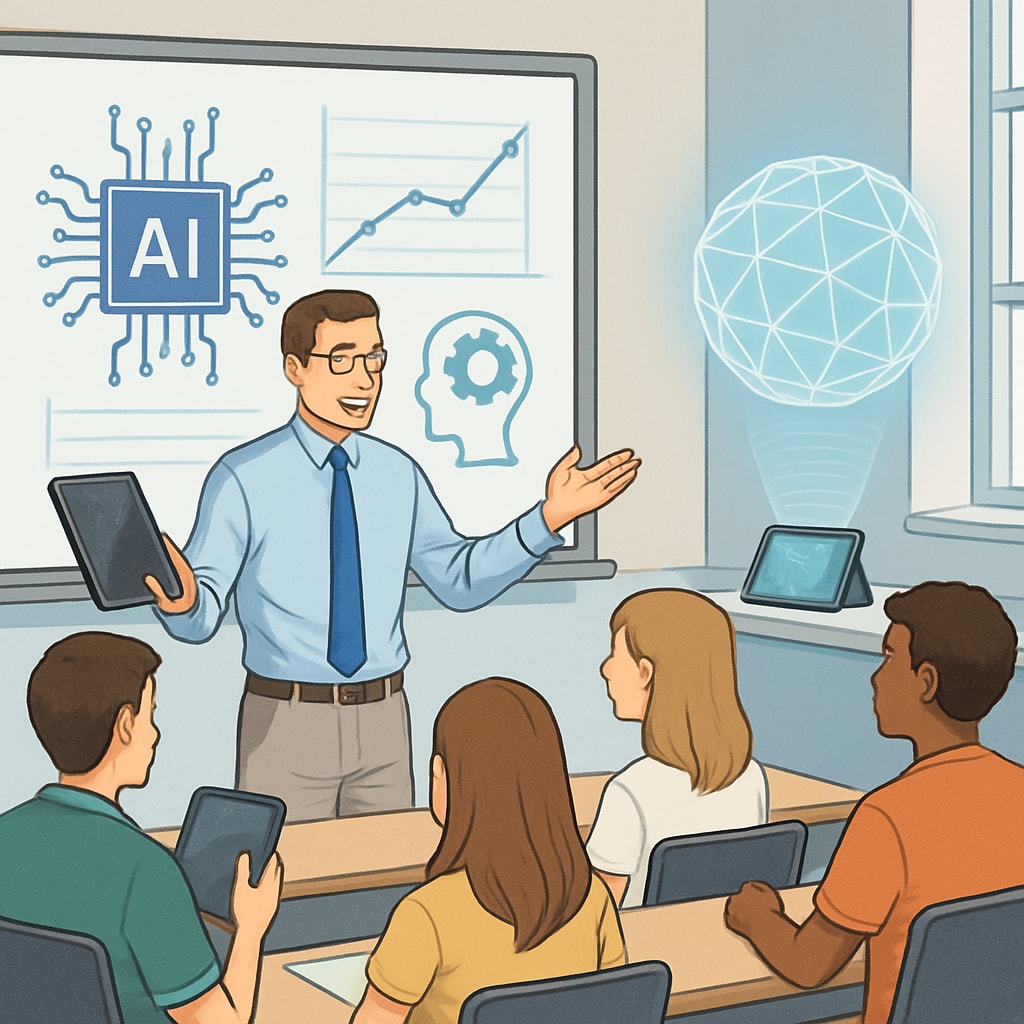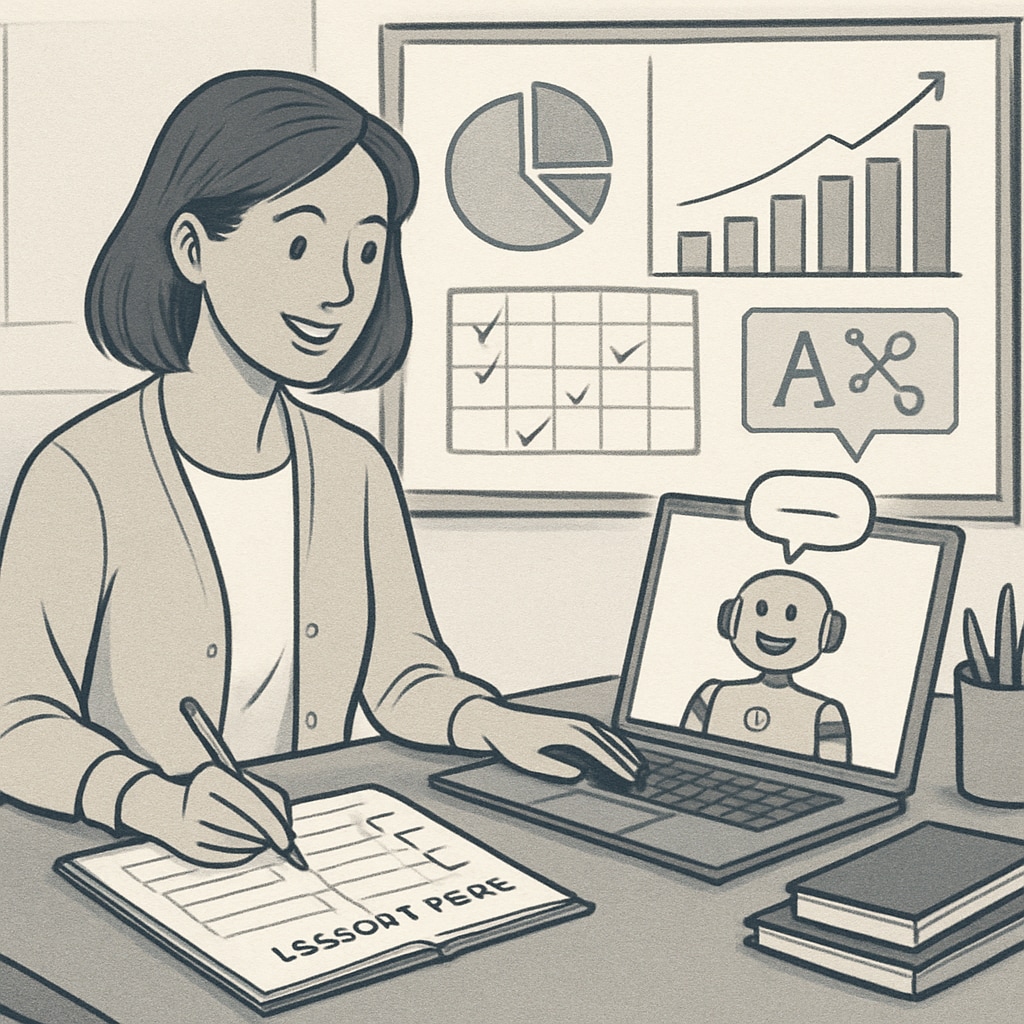The integration of AI education applications into learning environments is reshaping the teaching profession, prompting educators to reconsider their roles and adapt to new technological realities. While artificial intelligence (AI) offers enhanced efficiency in grading, personalized learning, and administrative tasks, it also raises concerns about the perceived value of human educators. As teachers navigate these challenges, one critical question emerges: how can educators maintain their professional dignity and secure fair pay aligned with their contributions in an AI-driven landscape?
AI’s Role in Reshaping the Teaching Profession
Artificial intelligence has already made significant strides in education. Tools like adaptive learning platforms and AI-powered tutoring systems are revolutionizing classroom interactions by offering tailored educational experiences for students. For example, platforms such as Khan Academy and Duolingo utilize algorithms to adjust lessons based on individual student progress.
However, this technological progress poses potential challenges for educators. Tasks traditionally performed by teachers, such as grading tests or developing lesson plans, are increasingly automated. While this shift reduces workload, it also risks diminishing the perceived importance of teachers in the education ecosystem. As AI becomes more proficient at delivering content and analyzing performance data, the unique human qualities of educators—empathy, mentorship, and cultural understanding—must be emphasized to differentiate their roles from AI functionalities.

How Teachers Can Adapt and Assert Their Value
To thrive in the age of AI, educators must redefine their professional identity. This process involves embracing technology while emphasizing the irreplaceable aspects of human interaction in education. For instance, while AI can efficiently teach facts and concepts, it cannot replicate the emotional support and ethical guidance teachers provide.
Here are some strategies to help teachers adapt and showcase their value:
- Focus on emotional intelligence: Teachers should emphasize skills that AI cannot replicate, such as empathy, conflict resolution, and interpersonal communication.
- Leverage AI as a tool: By integrating AI into their teaching methods, educators can enhance their efficiency while demonstrating their ability to work alongside technology.
- Prioritize continuous learning: Staying updated on AI advancements and acquiring new skills will enable teachers to remain relevant in a tech-driven education system.
- Advocate for fair compensation: Educators must engage in conversations about pay structures that account for their unique contributions, including emotional labor and mentorship.

Balancing AI Integration with Fair Pay
While adapting to technological changes is essential, ensuring equitable pay remains a pressing concern. The automation of routine tasks may lead decision-makers to undervalue the effort and expertise teachers bring to their roles. As a result, educators must proactively advocate for salary structures that reflect their contributions beyond the scope of AI capabilities.
For example, unions and professional organizations can play a key role in negotiating pay scales that recognize the evolving demands of the teaching profession. Additionally, educators can leverage their unique skills to differentiate themselves from AI systems, ensuring that their work remains indispensable in the classroom.
As AI continues to evolve, balancing its integration with fair compensation will require collaboration among teachers, policymakers, and education technology developers. By emphasizing the human aspects of teaching—such as fostering creativity, building relationships, and promoting ethical decision-making—educators can secure their place in the AI-powered future of learning.
Learn more about AI in education on Wikipedia
Explore AI’s broader impact on Britannica
The Future of Education: Collaboration Between Teachers and AI
In the age of artificial intelligence, the teaching profession is undergoing transformation. While challenges like automation and perceived undervaluation exist, the opportunities for collaboration between educators and AI are vast. Teachers can position themselves as indispensable figures who guide, mentor, and inspire students in ways AI cannot.
Ultimately, the future of education will depend on striking a balance between technology and human expertise. By embracing AI as a partner rather than a competitor, educators can secure their professional dignity and redefine their roles in a rapidly changing landscape.
As the education sector continues to evolve, the importance of human connection, creativity, and emotional intelligence will remain central to the teaching profession. By adapting to technological advancements and advocating for fair compensation, teachers can ensure their value is recognized and rewarded.


